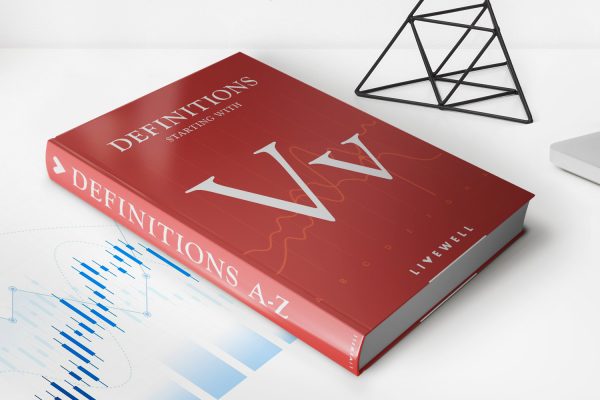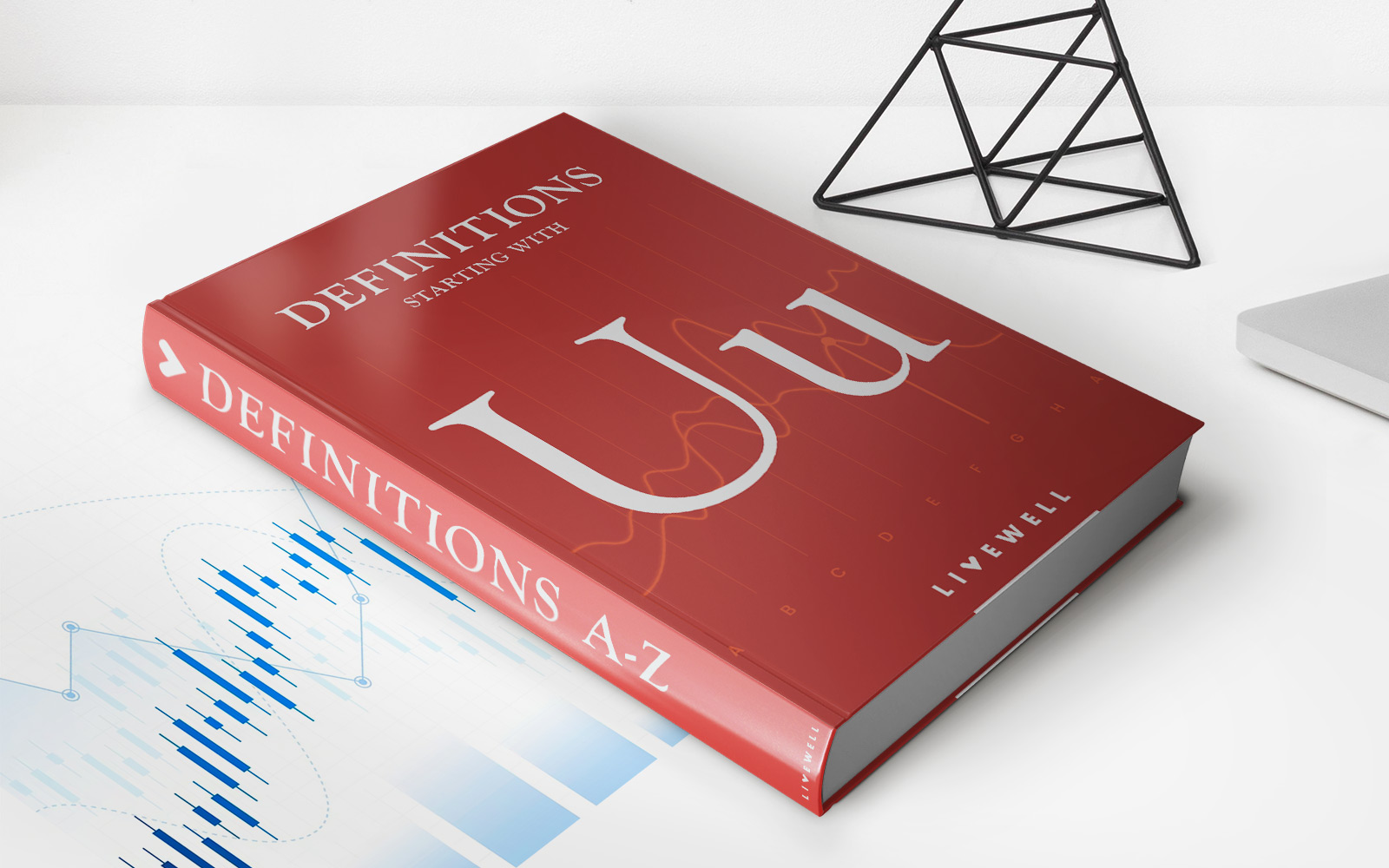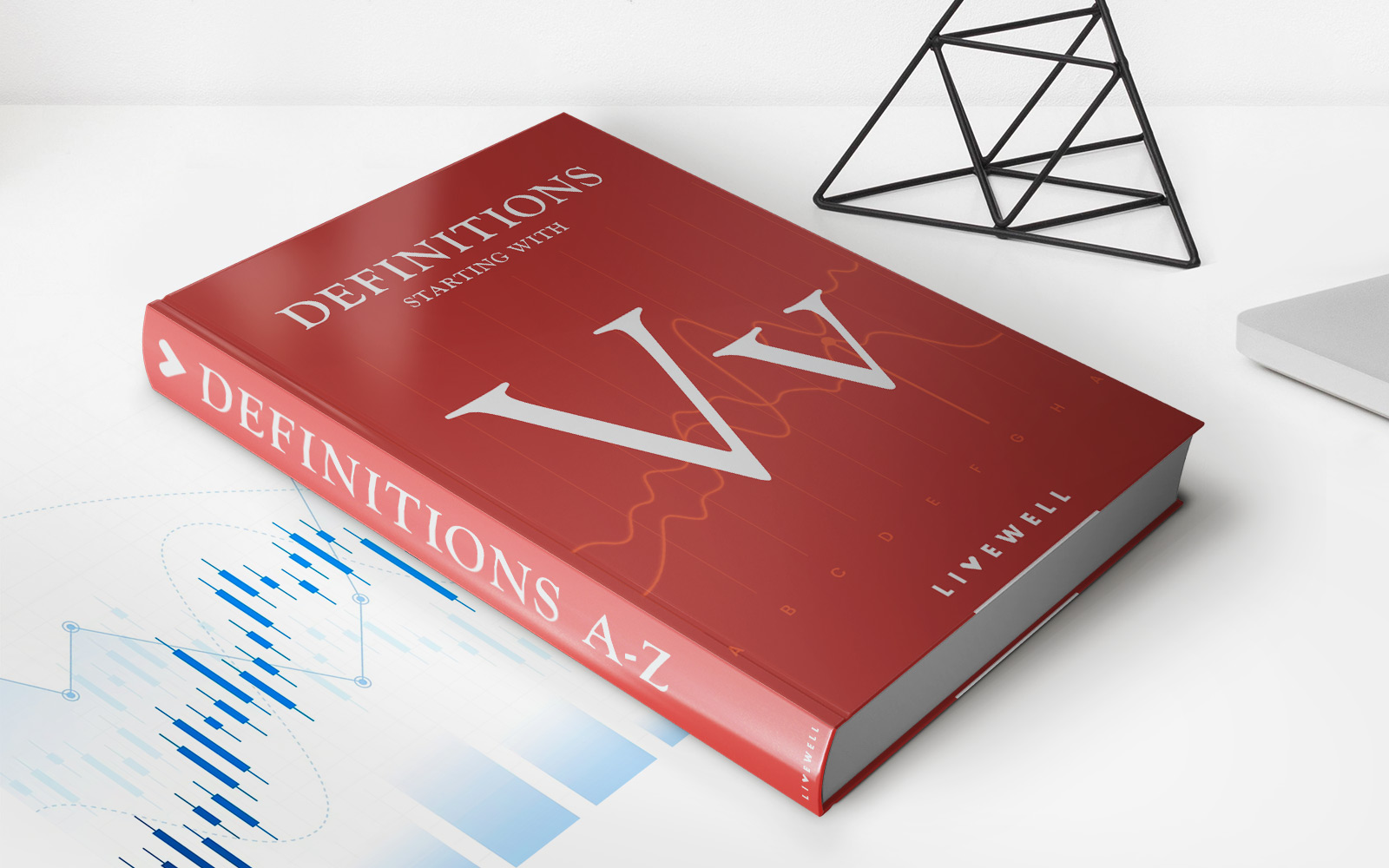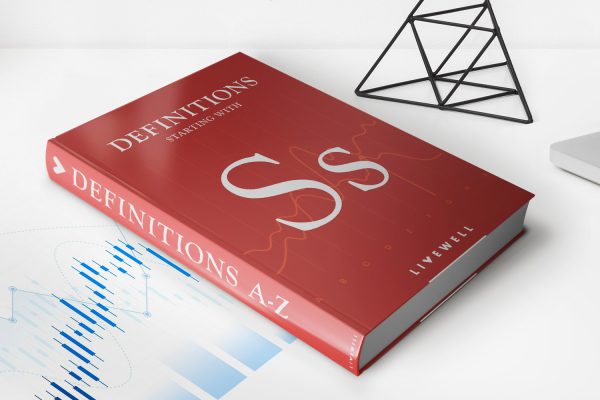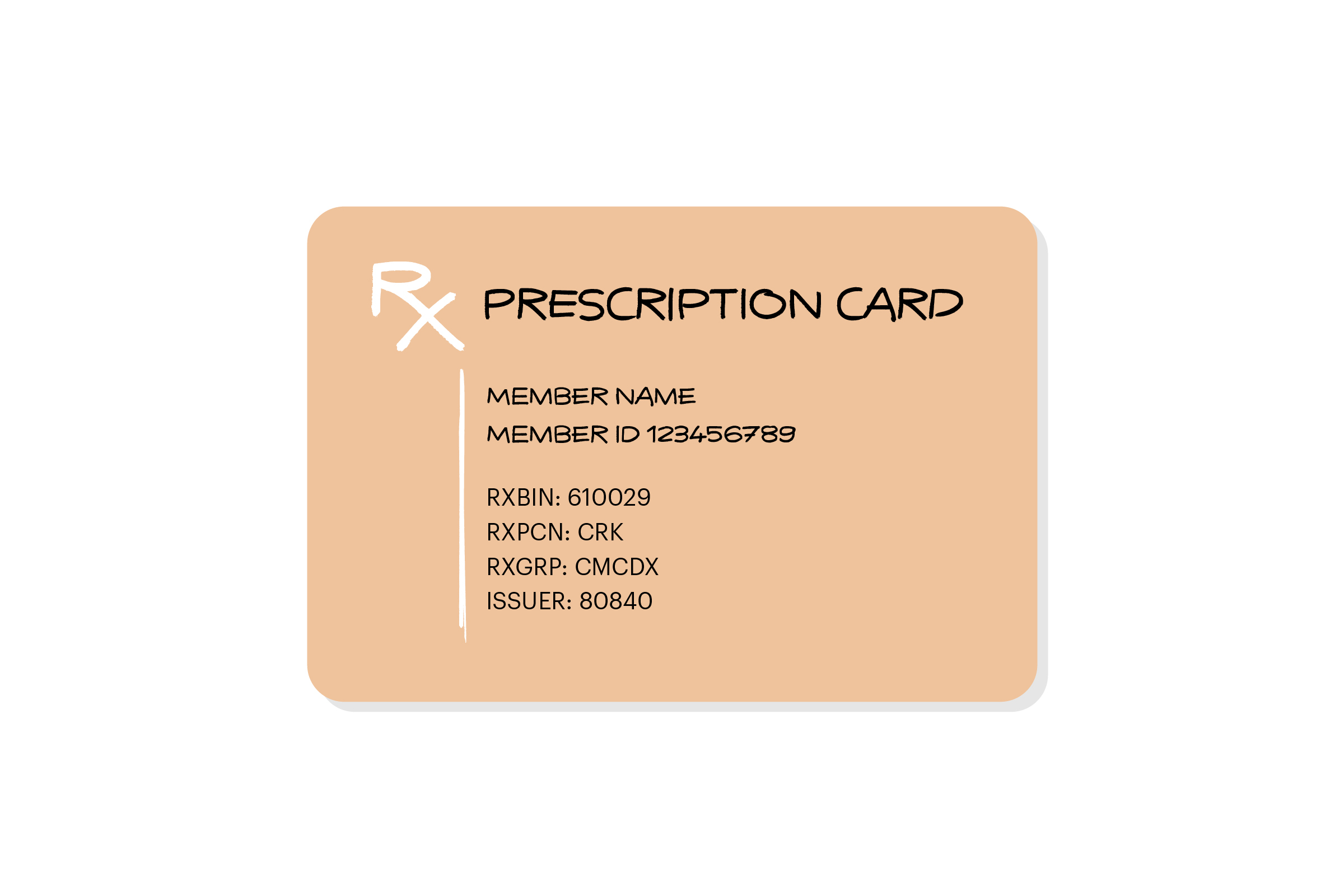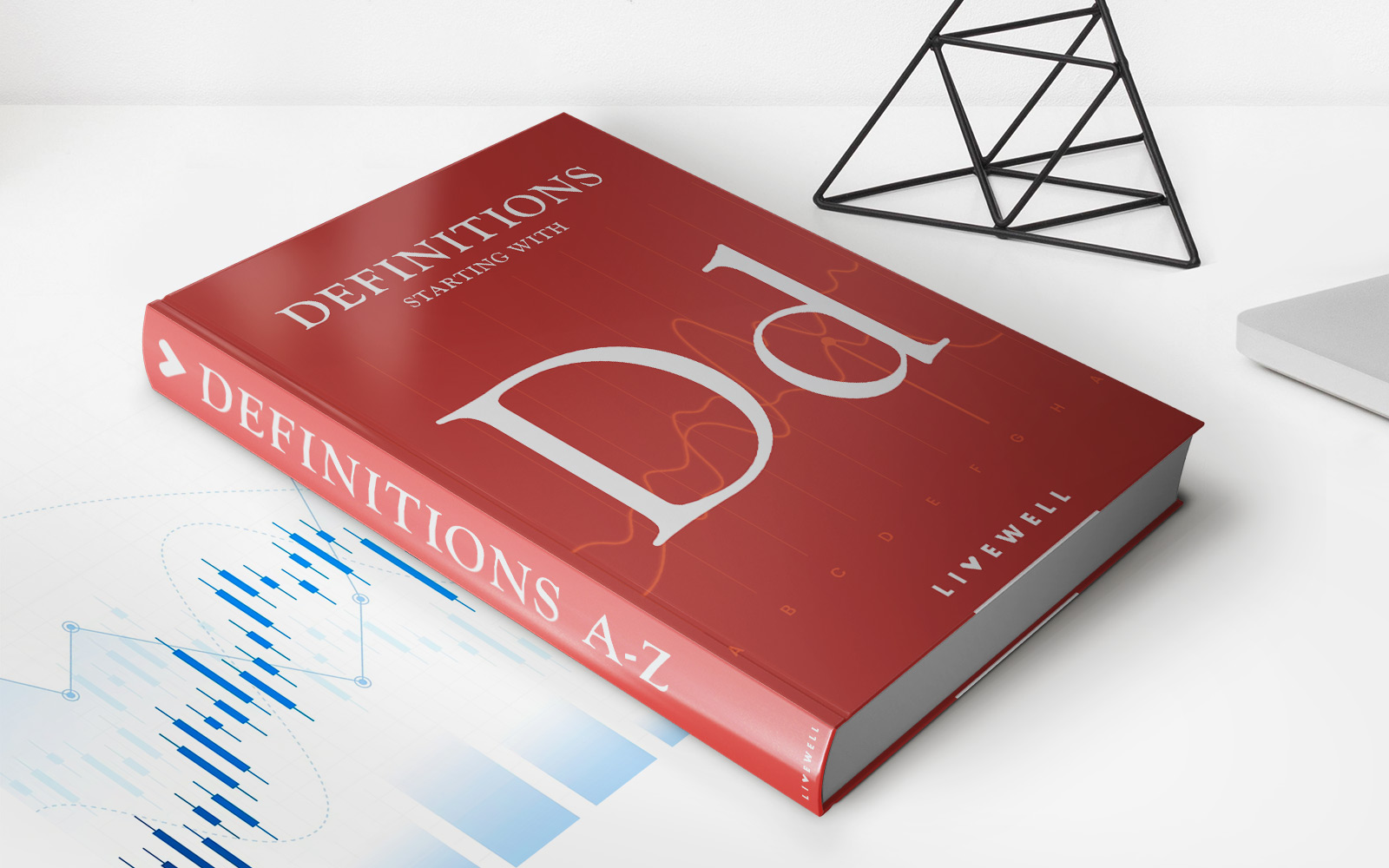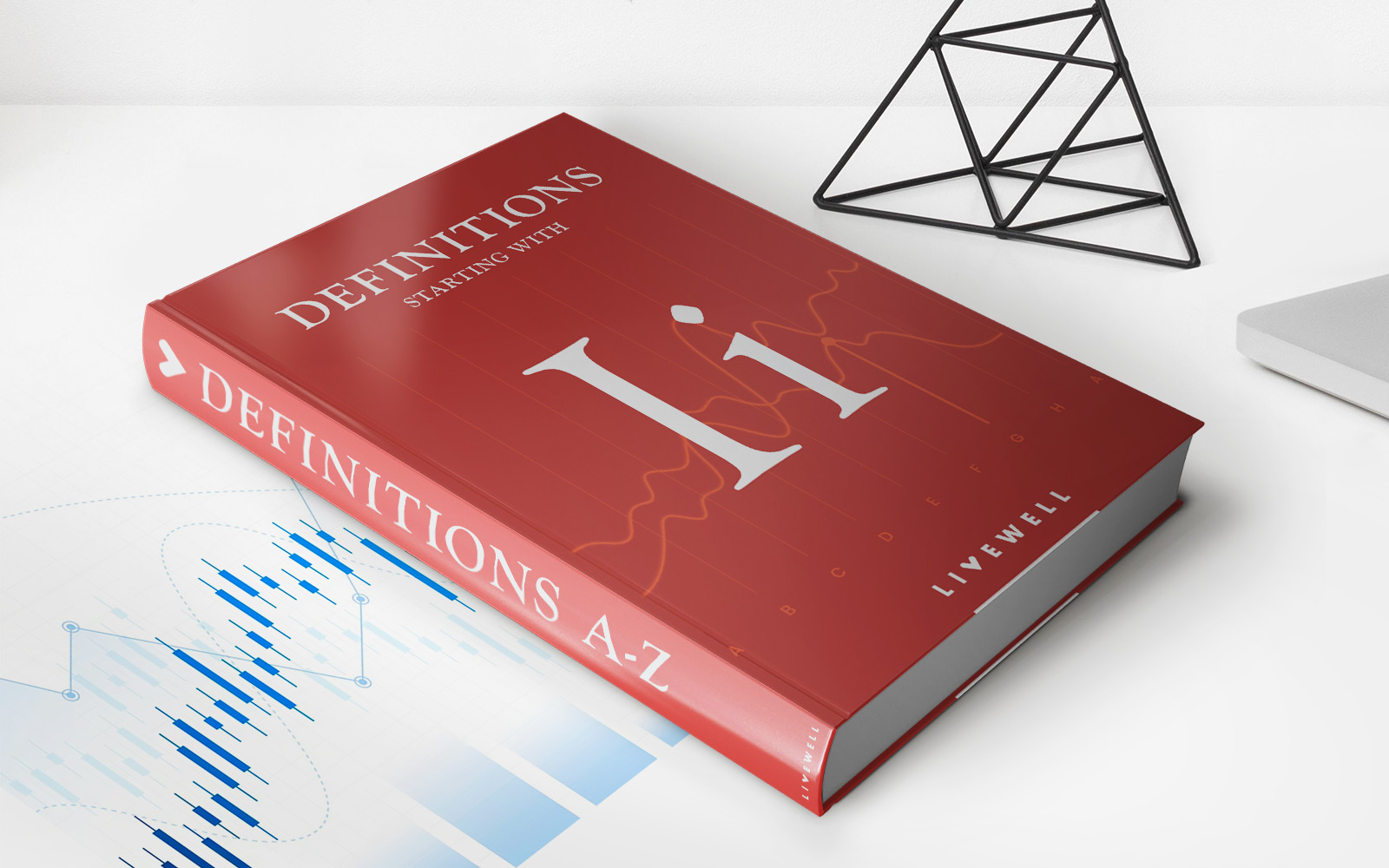

Finance
What Is A Veterans Pension
Modified: December 30, 2023
Learn about veterans pensions and how they can help with financial support. Discover the eligibility requirements and find out how to apply.
(Many of the links in this article redirect to a specific reviewed product. Your purchase of these products through affiliate links helps to generate commission for LiveWell, at no extra cost. Learn more)
Table of Contents
Introduction
Welcome to our comprehensive guide on veterans pensions. In this article, we will explore what a veterans pension is, who is eligible for it, the different types of veterans pensions available, how to apply for benefits, and additional programs and benefits that veterans may be entitled to. Whether you are a veteran yourself or someone who is supporting a veteran, understanding veterans pensions is crucial for accessing the financial assistance and benefits that are available.
A veterans pension, also known as a VA pension or veterans benefit, is a financial assistance program provided by the Department of Veterans Affairs (VA) to honorably discharged veterans or their surviving spouses who meet certain eligibility requirements. These pensions are intended to provide ongoing financial support to veterans who have limited income and assets, and who may need assistance with the costs of daily living, including healthcare expenses.
It is important to understand that a veterans pension is different from a military retirement pension. Military retirement pensions are given to veterans who have served for a minimum number of years and met certain criteria, while veterans pensions are available to any eligible veteran, regardless of their length of service.
Being aware of the different types of veterans pensions and the eligibility criteria is essential to determine whether you or a loved one may qualify for financial assistance. The VA offers several types of veterans pensions, including:
- Service Pension
- Disability Pension
- Survivors Pension
- Pension for Aid and Attendance
Each pension program has its own specific requirements and benefits, and we will explore them in more detail in the following sections. Whether you served in combat or peacetime, have a disability related to your military service, or are a surviving spouse, there may be a veterans pension that you or your loved one can benefit from.
As you navigate the process of applying for a veterans pension, it is important to have the necessary documentation to support your application. The VA requires specific information to verify your eligibility and calculate your pension benefit amount. We will discuss the documentation requirements in a later section to ensure you are well-prepared when submitting your application.
Finally, we will look into additional benefits and programs available for veterans, such as healthcare services, educational assistance, and vocational rehabilitation. Understanding these programs can provide a comprehensive overview of the benefits and support that veterans may be entitled to.
Now that you have an overview of what to expect in this guide, let’s delve into the different types of veterans pensions and explore who is eligible for these benefits.
Definition and Eligibility
When it comes to veterans pensions, it is essential to understand the definition and eligibility criteria to determine if you or a loved one may qualify for financial assistance. The Department of Veterans Affairs (VA) provides pensions to honorably discharged veterans or their surviving spouses who meet certain requirements.
To be eligible for a veterans pension, you must meet the following general criteria:
- Eligible Service: You must have served on active duty in the military and been discharged under conditions other than dishonorable. The specific length of service required may vary depending on the pension program you are applying for.
- Income Limitations: Veterans pensions are intended for individuals with limited income and resources. The VA sets income limitations that determine eligibility for these benefits. The exact income limits may vary based on factors such as the number of dependents and the pension program you are applying for.
- Age or Disability: Some veterans pensions have age or disability requirements. For example, the Service Pension and Disability Pension programs do not have specific age requirements, but you must have a permanent and total disability to qualify for the Disability Pension.
It is important to note that the eligibility criteria may vary for each type of veterans pension. Let’s take a closer look at some of the key requirements for each pension program:
- Service Pension: The Service Pension, also known as the nonservice-connected pension, is available to veterans who served during a wartime period and have limited income and resources. There are specific wartime periods defined by the VA, and you must have served at least 90 days of active duty, with at least one day occurring during a wartime period. Additionally, you must not have been Dishonorably Discharged from military service.
- Disability Pension: The Disability Pension is available to veterans who have a permanent and total disability that is not caused by their military service. This pension is income-based, which means that your income must be below a certain threshold to be eligible. The disability does not need to be service-connected, but it must prevent you from performing substantial, gainful employment.
- Survivors Pension: The Survivors Pension, also known as the Death Pension, is available to surviving spouses and dependent children of deceased veterans who meet certain requirements. To be eligible, the veteran must have served during a wartime period and met the minimum active duty requirements. Surviving spouses must also meet income and net worth limitations set by the VA.
- Pension for Aid and Attendance: The Pension for Aid and Attendance is available to veterans and their surviving spouses who require the aid and attendance of another person or are housebound due to a permanent disability. This pension provides additional financial assistance to cover the costs of necessary care, whether at home, in an assisted living facility, or a nursing home.
It’s important to note that meeting the basic eligibility requirements does not guarantee approval for a veterans pension. Each application is reviewed on a case-by-case basis, and factors such as income, assets, and medical conditions are taken into consideration. It is advisable to consult with a VA representative or professional to assess your eligibility and navigate the application process successfully.
Now that we have clarified the definition and general eligibility criteria for veterans pensions, let’s explore the different types of veterans pensions available to eligible individuals.
Types of Veterans Pensions
The Department of Veterans Affairs (VA) offers several types of veterans pensions that are designed to provide financial assistance to eligible veterans and their surviving spouses. Each pension program has its own specific eligibility requirements and benefits. Understanding the different types of veterans pensions can help you determine which program you may qualify for and what benefits you may be entitled to.
- Service Pension: Also known as the nonservice-connected pension, the Service Pension is available to veterans who served during a wartime period and have limited income and resources. To qualify, you must have served at least 90 days of active duty, with at least one day occurring during a wartime period. The specific wartime periods defined by the VA include World War II, the Korean War, the Vietnam War, and the Persian Gulf War.
- Disability Pension: The Disability Pension is available to veterans who have a permanent and total disability that is not caused by their military service. This pension is income-based, meaning your income must be below a certain threshold to be eligible. The disability does not need to be service-connected, but it must prevent you from performing substantial, gainful employment. It is important to note that veterans who have a service-connected disability may be eligible for disability compensation rather than the Disability Pension.
- Survivors Pension: The Survivors Pension, also known as the Death Pension, is available to surviving spouses and dependent children of deceased veterans who meet certain requirements. To be eligible, the veteran must have served during a wartime period and met the minimum active duty requirements. Surviving spouses must also meet income and net worth limitations set by the VA. This pension serves as a valuable source of financial support for surviving family members after the veteran’s passing.
- Pension for Aid and Attendance: The Pension for Aid and Attendance provides additional financial support to veterans and their surviving spouses who require the aid and attendance of another person or are housebound due to a permanent disability. This pension can cover the costs associated with necessary care, whether received at home, in an assisted living facility, or a nursing home. The Aid and Attendance pension can make a significant difference in the quality of life for veterans and their spouses who need assistance with daily activities.
It’s important to note that veterans can only receive one pension benefit at a time. Therefore, if you are eligible for multiple pensions, such as both the Service Pension and the Disability Pension, you will need to choose one that provides the most favorable benefit.
Understanding the different types of veterans pensions and their specific eligibility criteria is crucial in determining which program is most applicable to your situation. It is recommended to consult with a VA representative or professional to assess your eligibility and determine the most appropriate pension program for you or your loved ones.
Now that we have explored the various types of pensions available, let’s move on to the next section, where we will discuss the pension benefit amounts and how they are determined.
Pension Benefit Amounts
The amount of benefits you can receive from a veterans pension is an important consideration. The Department of Veterans Affairs (VA) determines the pension benefit amount based on several factors, including the type of pension program, your income, and any additional circumstances that may impact your eligibility.
It is important to note that veterans pensions are income-based, meaning that the amount of pension you receive will depend on your income and assets. The VA sets income limits for each pension program, and if your income exceeds those limits, your pension benefit may be reduced or even eliminated.
Let’s take a closer look at the pension benefit amounts for each type of veterans pension:
- Service Pension: The Service Pension provides a monthly benefit to eligible veterans with limited income. The specific benefit amount is determined by a calculation that considers your countable income, deductible expenses, and the maximum annual pension rate set by the VA. The maximum annual pension rates are adjusted annually by the VA, and additional allowances may be added based on factors such as dependents or the need for Aid and Attendance.
- Disability Pension: The amount of Disability Pension benefits is also based on several factors, including income and the veteran’s disability rating. The VA assigns a disability rating that determines the level of benefits. The higher the disability rating, the higher the monthly benefit amount. It’s important to note that the Disability Pension is tax-free.
- Survivors Pension: The Survivors Pension provides monthly benefits to eligible surviving spouses and dependent children of deceased veterans. The amount of the pension varies depending on factors such as income, net worth, and the number of dependents. The VA calculates the benefit amount using a similar methodology as the Service Pension, taking into account countable income, deductible expenses, and the maximum annual pension rate.
- Pension for Aid and Attendance: The Pension for Aid and Attendance provides additional financial assistance to veterans and surviving spouses who require the aid and attendance of another person or are housebound due to a permanent disability. The VA sets maximum annual pension rates for this program as well, based on factors such as the need for aid and attendance, and whether the applicant is a veteran or a surviving spouse.
It is important to highlight that these benefit amounts are subject to change, as the VA may adjust the rates periodically. Consulting with a VA representative or professional can provide you with the most up-to-date information on pension benefit amounts and any changes in the rates.
Additionally, it is crucial to note that veterans pensions may impact other benefits or income sources. Veterans receiving pension benefits are required to report any changes in income or assets to the VA, as it may affect the amount of pension they are eligible to receive.
Understanding the pension benefit amounts and how they are determined is crucial in assessing the financial support available to eligible veterans and their dependents. In the next section, we will discuss the application process for veterans pensions and the documentation required.
Applying for a Veterans Pension
If you believe you are eligible for a veterans pension, it is important to know the steps involved in applying for these benefits. The process varies slightly depending on the type of pension you are applying for. In general, the application process involves the following steps:
- Gather Required Information: Before starting the application, gather all the necessary information and documentation. This includes your military service records, income information, assets, medical records, and any other supporting documents that may be requested. Having everything ready will help streamline the application process.
- Complete the Application: You can apply for a veterans pension online through the VA’s website, by mail, or in person at a regional VA office. The application form may vary depending on the type of pension you are applying for. Provide accurate and detailed information, ensuring that you answer all questions and provide any required supporting documentation.
- Submit the Application: Once you have completed the application, submit it to the appropriate VA office. If applying online, follow the instructions to submit your application electronically. If applying by mail or in person, ensure that you have included all the required documentation and follow the specified submission process.
- Wait for Review and Decision: After submitting your application, the VA will review your application, including all the supporting documentation. The processing time may vary depending on the complexity of your case and the volume of applications being processed. Be patient during this stage and be prepared to provide any additional information or documentation if requested by the VA.
- Receive Decision: Once the VA has reviewed your application, you will receive a decision regarding your eligibility for a veterans pension. If approved, the decision letter will outline the benefit amount and any conditions or requirements that need to be met to continue receiving the pension. If your application is denied, the decision letter will provide information on how to appeal the decision.
It is essential to keep in mind that the application process for veterans pensions can be complex, and individual circumstances may vary. Seeking assistance from a VA representative, veterans service organizations, or financial professionals with expertise in VA benefits can provide valuable guidance and support throughout the application process.
Additionally, it is important to maintain accurate records and notify the VA of any changes in your circumstances that may affect your eligibility or benefit amount. The VA regularly reviews pension cases and may require updated information to ensure the continued accuracy and appropriateness of the benefits being received.
Now that you have an understanding of the application process, let’s move on to the next section, where we will discuss the documentation required for a veterans pension application.
Documentation Required
When applying for a veterans pension, it is essential to gather and provide the necessary documentation to support your application. The Department of Veterans Affairs (VA) requires specific information to verify your eligibility and calculate your pension benefit amount. Having all the required documentation in order will help ensure a smooth application process. Here are some of the key documents you will typically need:
- Military Service Records: Provide documentation that verifies your military service, such as your DD-214 form or equivalent. This form outlines your dates of service, character of discharge, and any awards or medals received during your service.
- Income and Asset Documentation: The VA requires detailed information about your income and assets to determine your eligibility for pensions. This may include pay stubs, tax returns, bank statements, investment account statements, and proof of any other sources of income. You may also need to provide documentation of any outstanding debts.
- Medical Records: If you are applying for a Disability Pension, you will need to provide medical evidence of your disability. This can include medical records, doctor’s notes, test results, and any other relevant documentation that supports your disability claim.
- Dependency Records: If you are applying for a Survivors Pension, you may need to provide documentation to verify the dependency status of your children or other dependents. This can include birth certificates, marriage certificates, adoption records, or court orders, depending on the specific circumstances.
- Proof of Citizenship: The VA requires proof of your citizenship or legal residency status. This can be in the form of a U.S. birth certificate, passport, naturalization certificate, or other appropriate documentation.
These are general examples of the documentation that may be required for a veterans pension application. Depending on your specific situation and the type of pension you are applying for, additional documentation may be requested by the VA. It is important to carefully review the application instructions and consult with a VA representative or professional to ensure you have all the necessary documentation in order.
When submitting your application, it is crucial to provide clear and legible copies of the original documents. Keep the originals in a safe place for your records. If you are unsure about the acceptability of any documents, reach out to the VA for clarification or guidance.
It is also worth noting that the VA may request further documentation or information during the application review process. In such cases, it is essential to respond promptly and provide the requested documents to avoid any delays in the processing of your application.
Now that we have covered the documentation required for a veterans pension application, let’s move on to the next section, where we will explore additional benefits and programs that veterans may be entitled to.
Additional Benefits and Programs
In addition to veterans pensions, there are several other benefits and programs available to eligible veterans. These benefits aim to provide comprehensive support and assistance to veterans in various aspects of their lives. Understanding these additional benefits can help veterans maximize their access to resources and services. Here are some key programs and benefits to be aware of:
- Healthcare Services: The VA offers a wide range of healthcare services, including medical, dental, and mental health care. Eligible veterans can receive treatment at VA medical centers, clinics, and hospitals across the country. Some veterans may qualify for priority access to certain services based on their service-connected disabilities or other factors. It is important to enroll in the VA healthcare system to access these services.
- Educational Assistance: The GI Bill provides educational benefits to eligible veterans, including funding for tuition, housing, and other educational expenses. The Post-9/11 GI Bill, Montgomery GI Bill, and other specialized programs offer options for veterans to pursue higher education, vocational training, or apprenticeships. These benefits can help veterans gain new skills and transition to civilian careers.
- Vocational Rehabilitation and Employment: The VA provides vocational rehabilitation and employment services to veterans with service-connected disabilities. This program offers career counseling, job training, resume assistance, and job placement services to help veterans achieve meaningful employment and reintegrate into the workforce. Veterans may also be eligible for financial support during their vocational rehabilitation program.
- Home Loans: The VA Home Loan Program offers affordable home financing options for eligible veterans. Through this program, veterans can obtain favorable interest rates, low or no down payment options, and other benefits when purchasing or refinancing a home. VA loans help veterans achieve homeownership and provide financial stability for their families.
- Disability Compensation: Veterans who have service-connected disabilities may be eligible for disability compensation. Disability compensation provides monthly tax-free payments to veterans who have disabilities resulting from their military service. The compensation amount is based on the severity of the disability and its impact on the veteran’s ability to work and perform daily activities.
- Burial Benefits: The VA provides burial benefits to honorably discharged veterans. These benefits may include a burial plot in a national cemetery or a monetary allowance toward burial costs. Surviving spouses and dependent children of veterans may also be eligible for certain burial benefits. It is important to contact the VA or a funeral home to make arrangements and explore available options.
These are just a few examples of the additional benefits and programs available to eligible veterans. It is important to research and explore the specific benefits and programs that may be applicable to your situation. The VA website, VA regional offices, and veterans service organizations can provide detailed information and guidance on accessing these benefits.
By understanding and utilizing these additional benefits and programs, veterans can enhance their overall well-being and quality of life. It is crucial to stay informed and take advantage of the support systems in place to honor and care for our veterans.
In the next section, we will address some frequently asked questions about veterans pensions and the associated benefits.
Frequently Asked Questions
As we conclude our comprehensive guide on veterans pensions, let’s address some frequently asked questions to provide further clarity on this topic:
- Q: Who is eligible for a veterans pension?
- Q: How do I apply for a veterans pension?
- Q: How are veterans pension benefit amounts determined?
- Q: Can I receive multiple pensions from the VA?
- Q: Are veterans pensions taxable?
- Q: Can I appeal a decision if my veterans pension application is denied?
- Q: How often should I update the VA on changes in my circumstances?
- Q: Where can I find more information about veterans pensions and benefits?
A: Eligibility for a veterans pension varies based on factors such as military service, income, disabilities, and dependent status. Generally, honorably discharged veterans or their surviving spouses who meet specific criteria may be eligible for a veterans pension.
A: To apply for a veterans pension, you need to complete the appropriate application form and submit it to the Department of Veterans Affairs (VA). You can apply online through the VA’s website, by mail, or in person at a regional VA office.
A: Veterans pension benefit amounts are determined by various factors, including income, assets, and the type of pension program. The VA sets income limits, and the benefit calculation considers countable income, deductible expenses, and the maximum annual pension rate for the specific pension program.
A: No, veterans can only receive one pension benefit at a time. If you are eligible for multiple pensions, such as both the Service Pension and the Disability Pension, you will need to choose the one that provides the most favorable benefit.
A: Veterans pensions are generally considered taxable income. However, if you are receiving a disability pension due to a service-connected disability, that portion of the pension is typically tax-free.
A: Yes, if your veterans pension application is denied, you have the right to appeal the decision. The appeals process involves submitting additional evidence or presenting your case to a higher-level decision review officer.
A: It is important to promptly notify the VA of any changes in your circumstances that may affect your eligibility or benefit amount. This includes changes in income, assets, marital status, and dependent status.
A: The Department of Veterans Affairs (VA) website is a valuable resource for information on veterans pensions and benefits. Additionally, VA regional offices and veterans service organizations can provide guidance and assistance in navigating the application process.
These answers provide a general overview of some frequently asked questions about veterans pensions. For any specific inquiries or to ensure the most accurate and up-to-date information, it is recommended to consult with a VA representative or professional.
As we conclude our guide, we hope that the information provided has shed light on veterans pensions and the associated benefits. These benefits aim to honor and support veterans and their families for their service and sacrifices. If you believe you may be eligible for a veterans pension, we encourage you to explore the opportunities available and reach out for assistance in navigating the application process.
Conclusion
In conclusion, veterans pensions are essential financial assistance programs provided by the Department of Veterans Affairs (VA) for eligible veterans and their surviving spouses. These pensions are designed to support veterans who have limited income and assets, and who may need assistance with the costs of daily living, including healthcare expenses. Understanding veterans pensions and the associated benefits is crucial for accessing the financial support available.
In this comprehensive guide, we have covered various aspects of veterans pensions, including the definition and eligibility criteria, the different types of veterans pensions available, how pension benefit amounts are determined, the application process, required documentation, additional benefits and programs, and frequently asked questions.
Throughout this guide, we have emphasized the importance of gathering accurate information, understanding the eligibility requirements, and seeking guidance from VA representatives or professionals. It is essential to have all the necessary documentation in order and to keep the VA updated on any changes in your circumstances.
As veterans, you have made tremendous sacrifices and contributions to your country. Veterans pensions and the additional benefits and programs available aim to honor and support you in return. Whether it is financial assistance, healthcare services, educational opportunities, or vocational rehabilitation, these resources are designed to help you thrive and enjoy a fulfilling post-military life.
If you believe you may be eligible for a veterans pension, we encourage you to explore your options, gather the required documentation, and take advantage of the support and resources available to you. Remember to consult with VA representatives, veterans service organizations, or financial professionals with expertise in VA benefits to ensure a smooth and successful application process.
Thank you for your service, and we extend our sincere gratitude to all veterans and their families. Your sacrifices and dedication to our nation will never be forgotten.


